Cryptocurrencies and Blockchain technology are profoundly transforming industries globally, not only bringing more efficient operating models, but also simplifying financial transactions and driving global interconnectivity to new heights. As the most representative cryptocurrency, BTC has become the core focus of this digital revolution, while also sparking widespread discussions about its ability to disrupt traditional finance and investment methods. Although companies like Tesla and MicroStrategy have boldly embraced BTC, many others have chosen not to directly bet on cryptocurrencies, but instead leverage Blockchain technology to empower their businesses through flexible innovation. This article will analyze how these companies cleverly integrate Blockchain technology, and discuss the different views of critics on the legitimacy and long-term impact of digital assets.
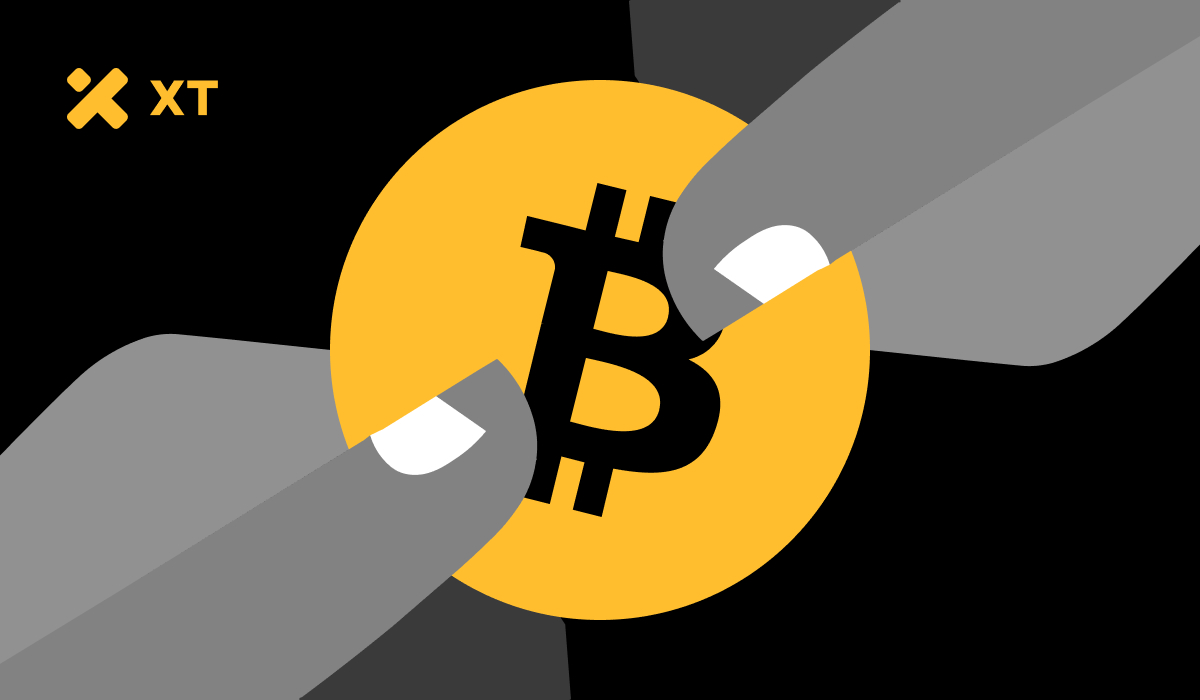
Companies Supporting Cryptocurrencies
Blockchain and cryptocurrency technologies are evolving rapidly, with more and more companies integrating them into their business practices to drive innovation, improve efficiency, and promote global interconnectivity. From the application of digital payments to the optimization of Blockchain operations, these companies are defining the future direction of decentralized technologies through concrete actions.
Microsoft: An Active Explorer of Blockchain, a Rational Observer of BTC
Microsoft has been at the forefront of Blockchain innovation, providing enterprise-level Blockchain solutions through its Azure cloud platform. As early as 2014, this tech giant was one of the first companies to support BTC payments, applying it to services like Xbox Live and Skype. However, Microsoft recently rejected a proposal to include BTC on its balance sheet, demonstrating a cautious attitude towards the high volatility of BTC.
This choice reflects Microsoft's persistence in financial stability and predictable investment in a rapidly changing economic environment. Rather than heavily betting on BTC, Microsoft is more focused on the practical application of Blockchain technology, such as improving supply chain transparency and ensuring data security. This pragmatic innovation path showcases Microsoft's ability to effectively balance risks while driving technological progress.
With its in-depth exploration of Blockchain and control over financial stability, Microsoft continues to maintain a leading position in the technology field. Its prudent yet forward-looking strategy not only consolidates its influence in the cryptocurrency ecosystem, but also provides a model for how companies can balance innovation and risk.
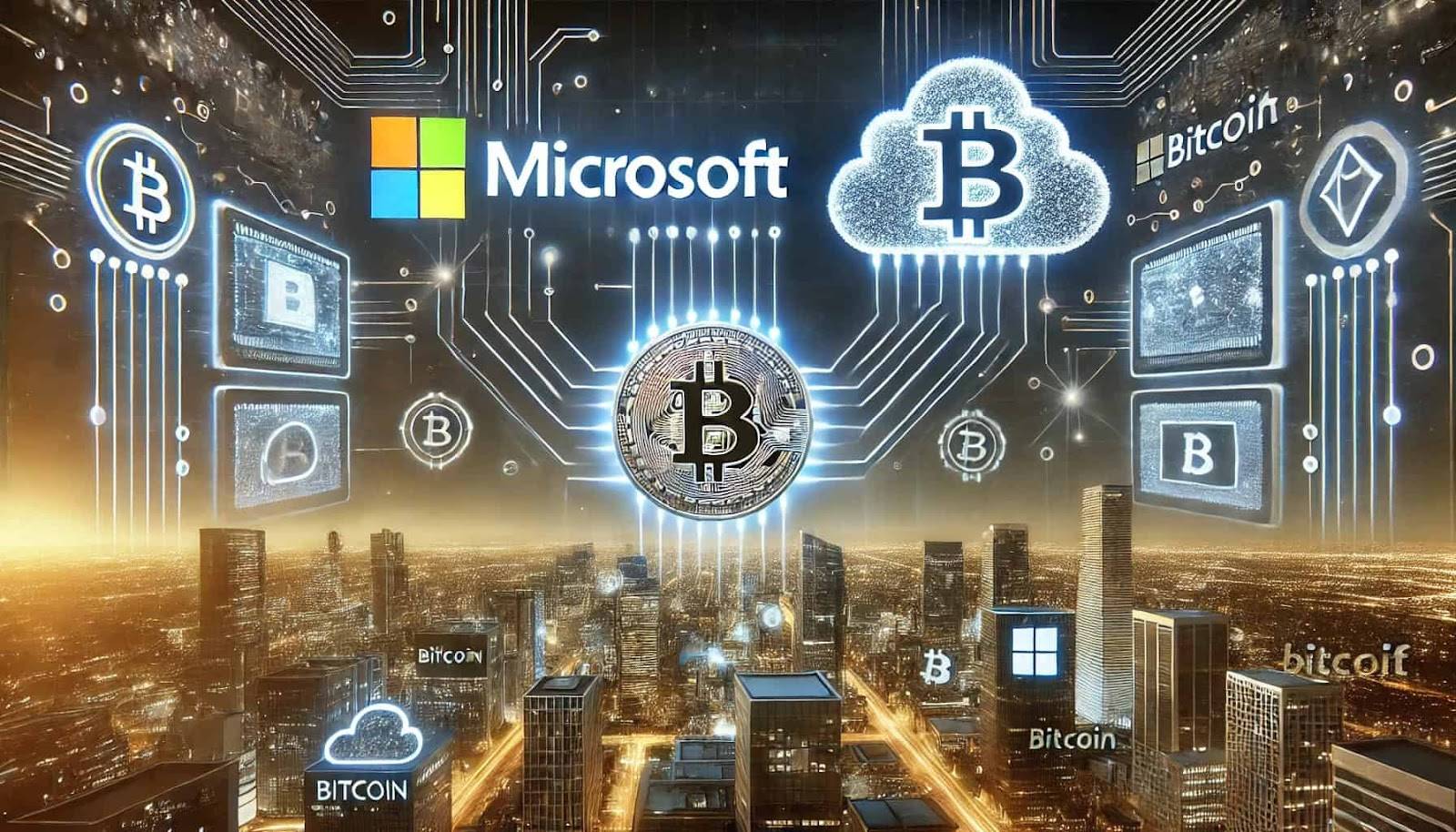
Image source: Brave New Coin
Tesla: An Innovation Pioneer in Cryptocurrency Integration
Tesla's foray into the cryptocurrency field has opened a new chapter in corporate adoption of digital assets. The company's support for BTC payments for vehicle purchases and its investment of a portion of its funds in BTC have garnered widespread attention. However, due to environmental concerns over BTC mining, Tesla temporarily suspended the related payments, but still retains its cryptocurrency assets, demonstrating confidence in the long-term potential of BTC.
At the same time, Tesla is also actively exploring other digital currencies such as Dogecoin, demonstrating its sustained interest in cryptocurrency innovation. The public support of CEO Elon Musk for cryptocurrencies has also made Tesla a leader in the integration of traditional business and digital finance. This "cautious experimentation and selective adoption" parallel strategy has made Tesla unique in the cryptocurrency industry.
In the process of continuously adjusting its cryptocurrency strategy, Tesla has provided valuable experience for how companies can balance innovation and responsibility. Whether addressing environmental challenges or exploring the potential of digital currencies, Tesla's practices fully demonstrate the complexity and foresight of corporate efforts to advance cryptocurrency applications.
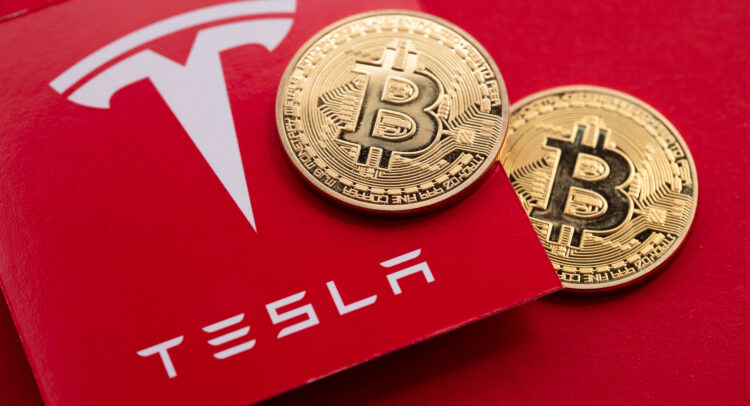
Image source: TipRanks
MicroStrategy: The Industry Benchmark for Enterprise-Level BTC Application
Under the leadership of CEO Michael Saylor, MicroStrategy has become a representative company in the corporate world supporting BTC. The company currently holds over 402,000 BTCs, ranking first globally in terms of corporate BTC holdings. Saylor views BTC as a powerful tool against inflation and an excellent store of value, incorporating it into MicroStrategy's core financial strategy.
The company has formulated an ambitious "21/21 Plan", aiming to raise $42 billion to further increase its BTC holdings, fully demonstrating its unwavering belief in this asset. This aggressive strategy not only consolidates MicroStrategy's position as a BTC supporter, but also drives more companies to explore the application of cryptocurrencies. Although its highly concentrated investment strategy has sparked controversy, MicroStrategy's market performance has proven the feasibility of its bold decisions.
MicroStrategy's practices showcase the opportunities and risks of BTC as a corporate asset, and its pioneering initiatives have made it a core driver of cryptocurrencies playing an important role in global finance.

Image source: The Chain Bulletin
Apple: The Tech Giant Cautiously Entering the Cryptocurrency Realm
Apple is entering the cryptocurrency market in a cautious and meticulous manner, focusing on providing user-friendly and convenient solutions, rather than directly investing in digital assets. By partnering with Coinbase Onramp, Apple Pay allows users to easily purchase cryptocurrencies, not only enhancing usability, but also effectively reducing the direct risk of digital assets.
In addition to payment functions, Apple is also exploring the potential applications of Blockchain technology in areas such as intellectual property protection and application ecosystem optimization. Although CEO Tim Cook has publicly expressed personal interest in cryptocurrencies, Apple's overall strategy still focuses on user experience and security. This prudent approach not only ensures the consistency of its innovation direction, but also effectively mitigates potential risks.
By focusing on consumer-friendly solutions, Apple has demonstrated how companies can enter the cryptocurrency field in a rational and sustainable manner. This step-by-step strategy not only reflects Apple's attention to digital assets, but also further consolidates its brand image in terms of reliability and security.
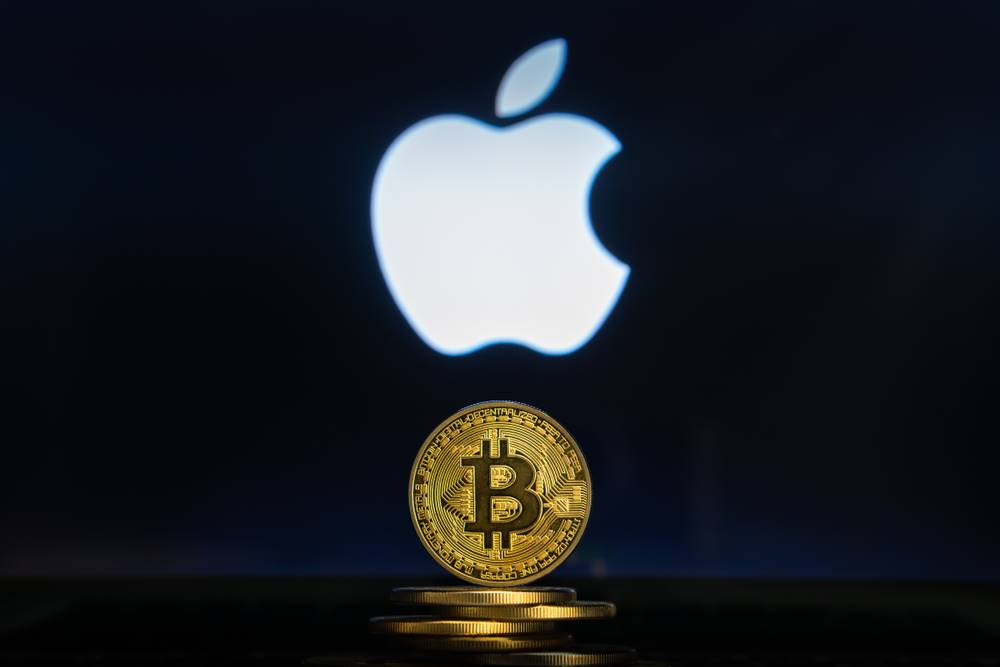
Image source: ETF Trends
Amazon: A Pioneer in Blockchain Technology, a Potential Player in the Cryptocurrency Future
Although Amazon has not yet accepted BTC payments, its investments in Blockchain technology fully demonstrate its far-reaching plans to improve business efficiency. From supply chain transparency to logistics management optimization, Amazon's Blockchain projects are dedicated to strengthening operational capabilities while enhancing user trust.
In recent years, rumors about Amazon's potential foray into the cryptocurrency field have been constantly heating up. Whether it's the reported $250 million BTC purchase or the recruitment of Blockchain experts, these have all generated widespread attention. Furthermore, Amazon also holds multiple Blockchain-related domain names (such as AmazonEthereum.org), further highlighting its potential and preparedness to integrate the digital asset ecosystem.
These strategic moves by Amazon clearly indicate its preparations for a Blockchain-driven future. By focusing on Blockchain technology innovation while cautiously exploring cryptocurrencies, Amazon is steadily consolidating its important position in the digital economy.
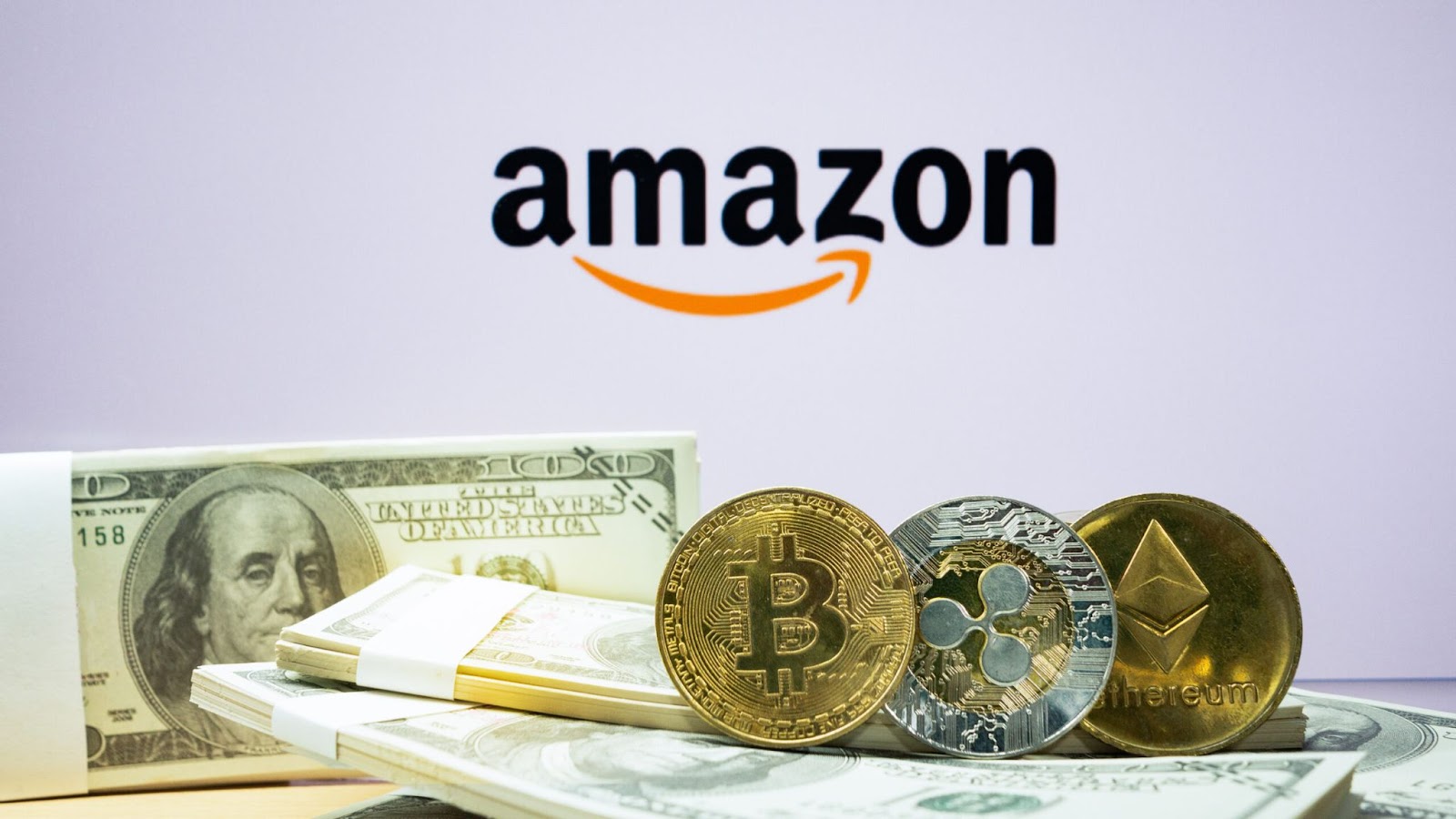
Image source: BanklessTimes
Visa: Industry Leader in Driving Crypto Mainstream Adoption
Visa has been at the forefront of integrating Bit into everyday life. Through partnerships with Bit exchanges and fintech companies, Visa has launched Bit-backed debit cards, allowing users to conveniently use digital assets for payments and opening new frontiers for Bit mainstream adoption.
Furthermore, Visa is actively exploring the application of Blockchain technology in enhancing transaction security and transparency, providing users with more efficient and secure payment experiences. These innovative initiatives not only make Bit more accessible to consumers and merchants but also further expand its real-world use cases.
Visa's actions reflect its confidence in the transformative potential of Bit for the financial industry. By bridging traditional and digital currencies, Visa has successfully consolidated its leadership position in the rapidly evolving financial ecosystem.
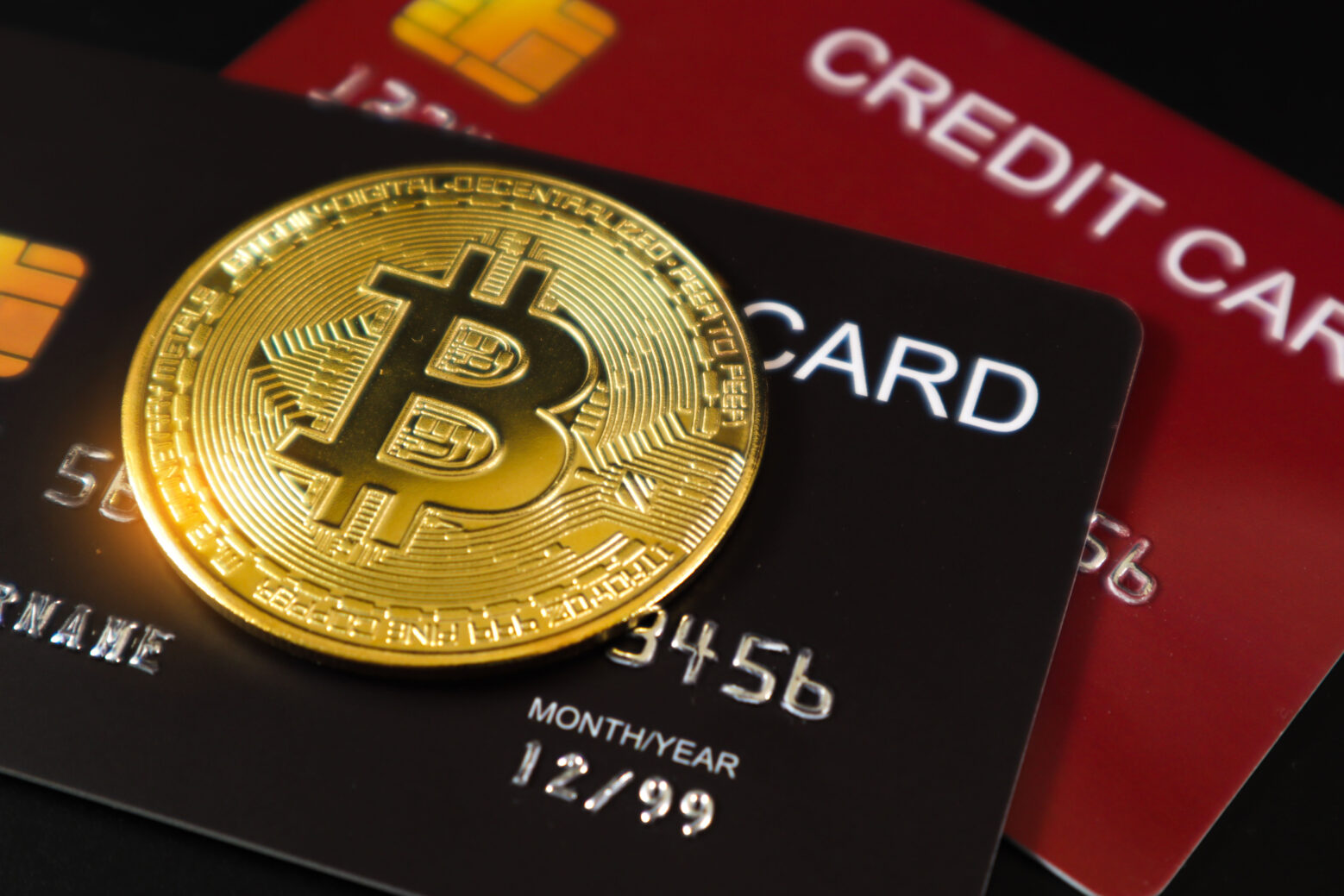
Image source: CryptoWallet.com
PayPal: Fintech Giant Reshaping Payments with Bit
PayPal is redefining how people interact with Bit, allowing users to directly buy, sell, or store digital assets on its platform. Its partnership with MetaMask further simplifies the transaction process, making the conversion between fiat and digital assets more convenient.
By supporting mainstream Bits like BTC and ETH, PayPal has successfully built a bridge between traditional commerce and digital finance. Additionally, its merchant services enable more businesses to accept Bit payments, further expanding the application of digital assets.
PayPal's forward-looking approach has solidified its leading position in the fintech industry. Through the continuous expansion of Bit services, PayPal is becoming a crucial driving force in the future development of digital payments.
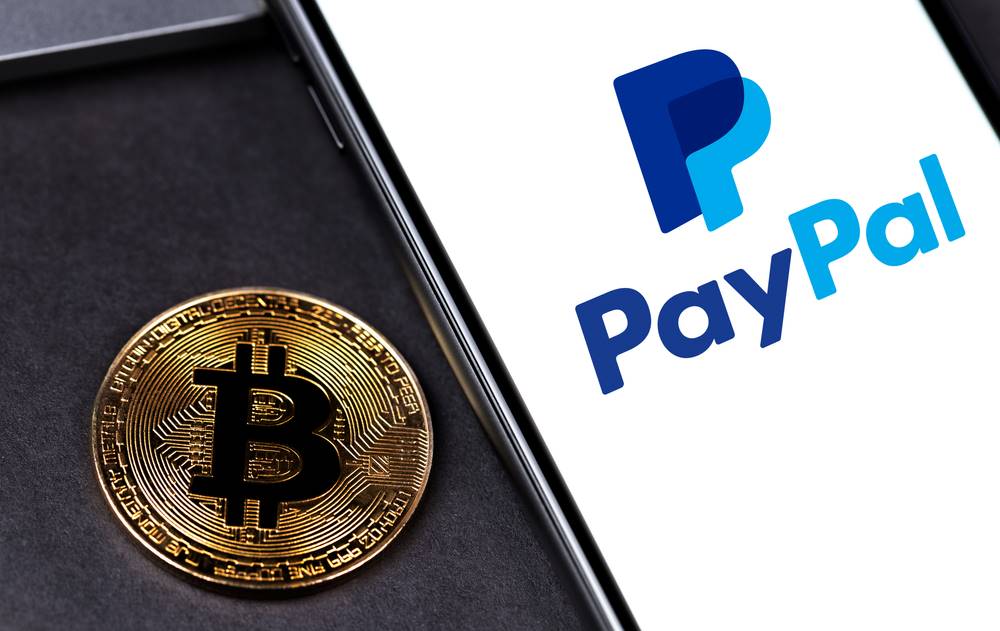
Image source: SmartData Collective
Bit Skeptics: Who Questions This Revolution?
While Bit and Blockchain technology are seen as transformative innovations, they have also drawn skepticism from various financial authorities. Critics mainly focus on the high volatility, ethical concerns, and uncertain regulatory environment of digital assets, providing a rational reflection on the market hype and reaffirming the importance of traditional investment principles.
Warren Buffett: Legendary Investor's Firm Opposition
Renowned as the "Oracle of Omaha," Warren Buffett has been a staunch opponent of BTC and Bit. He believes these digital assets lack intrinsic value and are merely speculative tools, completely at odds with his investment philosophy emphasizing tangible assets and sound fundamentals. He even once likened BTC to "rat poison squared," criticizing its inability to generate actual returns and its distance from productive businesses.
However, Buffett's Berkshire Hathaway has made a significant investment in Nubank, a Brazilian fintech company offering Bit services. This move reflects Buffett's pragmatic approach: while he personally does not endorse BTC, he recognizes the profound impact of digital assets on the global financial landscape. This nuanced stance demonstrates his rational insights into market trends, even amid his skepticism.
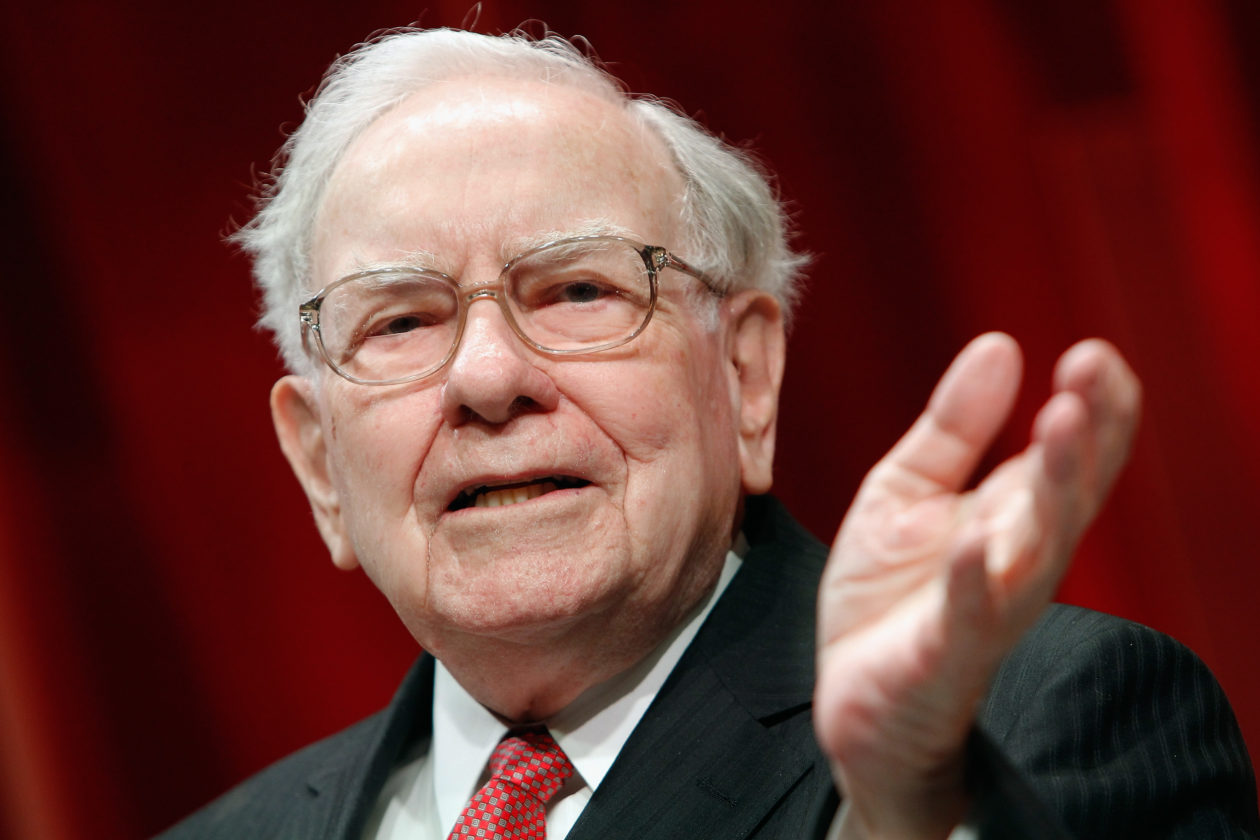
Image source: Forkast News
Jamie Dimon: Pragmatic Differentiation between BTC and Blockchain
JPMorgan Chase CEO Jamie Dimon has been outspoken in his criticism of BTC, even calling it a "fraud" and repeatedly warning investors about its speculative risks. However, his negative stance on Bit has not hindered his high regard for Blockchain technology. Under Dimon's leadership, JPMorgan has launched Blockchain initiatives like JPM Coin, aiming to leverage the efficiency of the technology for cross-border payments.
Dimon's position reflects a pragmatic and rational approach: fully utilizing the advantages of Blockchain technology while avoiding the volatility and regulatory risks associated with BTC. This prudent yet practical strategy not only showcases the potential of Blockchain in traditional finance but also highlights the ongoing challenges that Bit continues to face.
Charlie Munger: Business Titan Criticizing Bit on Moral Grounds
The late vice chairman of Berkshire Hathaway, Charlie Munger, has been particularly harsh in his criticism of BTC. He has publicly accused BTC of being "immoral" and even described Bit trading as "trading turds." Munger's criticism goes beyond the high volatility of Bit, extending to ethical concerns over its facilitation of money laundering, drug trafficking, and ransomware attacks.
He has praised China's comprehensive ban on Bit, considering it wiser than the more lenient approach taken by the US. Munger has used the analogy of a "baby's brain" to describe BTC trading, further expressing his disdain for Bit. In his view, Bit not only fails to provide any tangible value to society but also encourages blind speculation and irrational behavior, completely contradicting his long-held value investing principles.
Fed Chair Powell: BTC is "Digital Gold"
Federal Reserve Chair Jerome Powell holds a neutral and rational stance on BTC, leaning more towards viewing it as a "speculative asset" akin to gold, rather than a currency. Powell believes BTC lacks the stability required for a medium of exchange and is more suitable as an investment tool than a transactional medium.
Regarding concerns that BTC may threaten the Fed's authority or the US dollar's status, Powell has explicitly stated that he does not share this view. He sees BTC as playing a complementary role in the financial system, rather than a competitor. While BTC's appeal as an inflation hedge has garnered significant attention, Powell points out that its high volatility limits its broader applicability.
Powell also emphasizes the importance of ensuring that the development of Bit does not pose systemic risks to the financial system. He advocates a balanced approach, maintaining a robust banking system while proactively embracing innovation to integrate digital assets into traditional finance. This balanced stance reflects his pragmatic approach to navigating the regulation and encouragement of technological advancements.
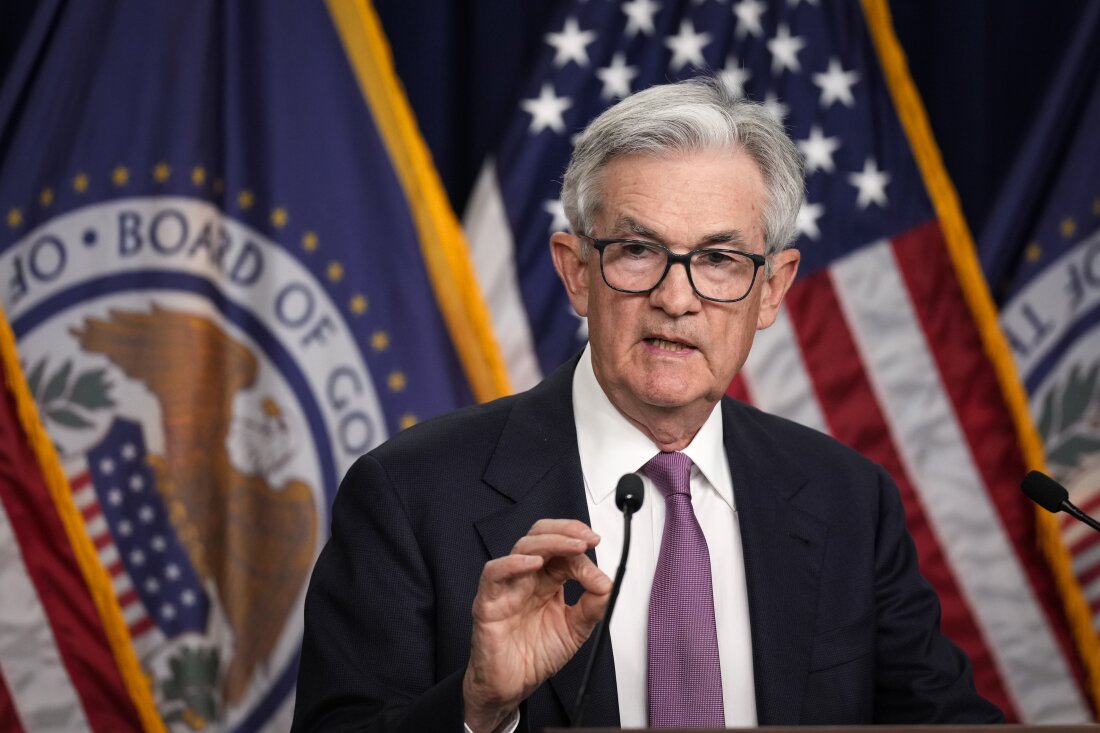
Image source: NPR
BTC New Era: Strategic Reserves and Global Competition
Donald Trump's confirmation of plans to establish a US BTC strategic reserve marks a significant shift in global attitudes towards Bit. Modeled after traditional oil reserves, this initiative aims to position the US as a global leader in the digital economy while also addressing the nation's $35 trillion debt burden. Senator Cynthia Lummis' proposed BITCOIN Act further deepens this strategic blueprint, proposing to accumulate 1 million BTC over the next five years, solidifying BTC's importance as a national-level strategic asset.
Concurrently, Russia is also accelerating its own BTC reserve program. President Putin has stated that BTC could serve as a foreign exchange reserve alternative to circumvent Western sanctions, intensifying the global competition for digital asset dominance. Analysts predict that BTC prices could surge to $800,000 due to its fixed supply and growing demand. As BTC becomes an increasingly crucial tool in the global power struggle, this international competition around digital assets is unfolding, injecting more uncertainty and possibilities into the future economic landscape.
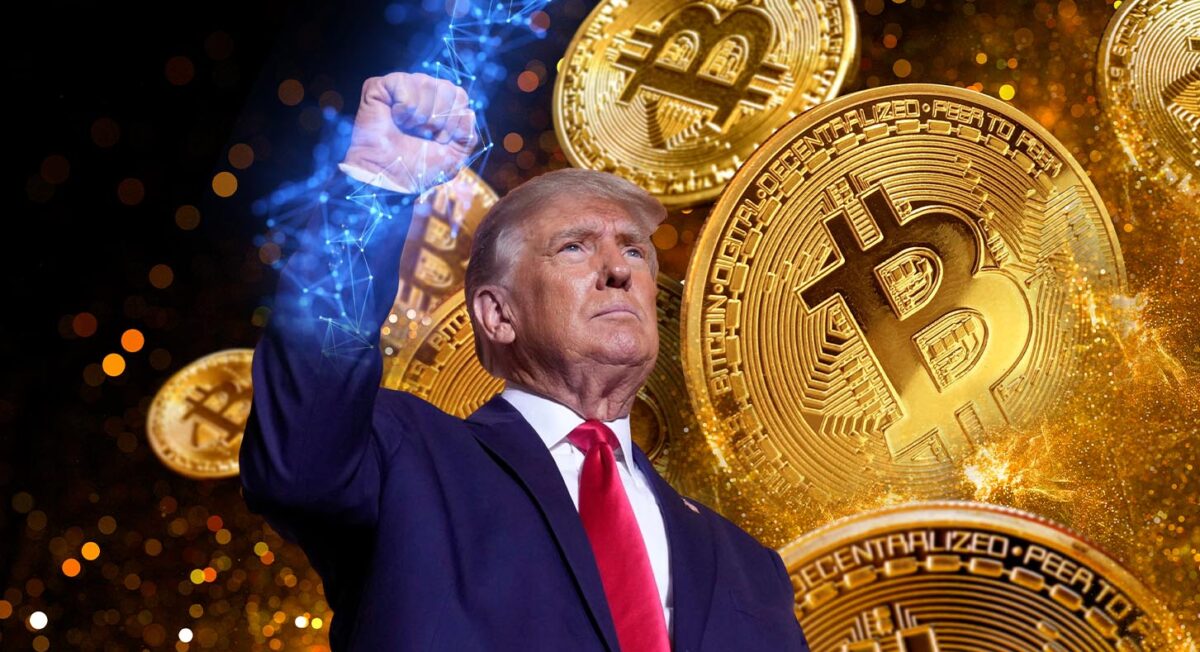
Image source: Peoples Gazette
Conclusion
Bit and blockchain technology have moved from the periphery of innovation to the mainstream, becoming an important force in shaping the future financial system and global strategy. Companies like Tesla, MicroStrategy, and PayPal continue to lead the transformation in this field, while Microsoft, Apple, and Amazon are exploring the potential applications of blockchain in a more cautious manner. At the same time, the views of critics like Warren Buffett and Jamie Dimon remind us that the rise of digital assets is accompanied by undeniable risks.
As Trump pushes for a Bit strategic reserve plan and Russia actively positions itself in the digital asset space, Bit's influence has gone beyond the realm of personal investment and become an integral part of national strategy and geopolitics. As digital assets have a profound impact on the global economic landscape, governments and companies need to strike a balance between bold innovation and risk control. Although the future of cryptocurrencies is still uncertain, their potential in reshaping the global financial system is undeniable.
About XT.COM
Established in 2018, XT.COM currently has over 7.8 million registered users and over 1 million monthly active users, with a user traffic of over 40 million in its ecosystem. We are a comprehensive trading platform that supports over 800 high-quality cryptocurrencies and 1,000 trading pairs. XT.COM Bit trading platform supports spot trading, margin trading, contract trading, and other rich trading varieties. XT.COM also has a secure and reliable Non-Fungible Token (NFT) trading platform. We are committed to providing users with the safest, most efficient, and most professional digital asset investment services.








